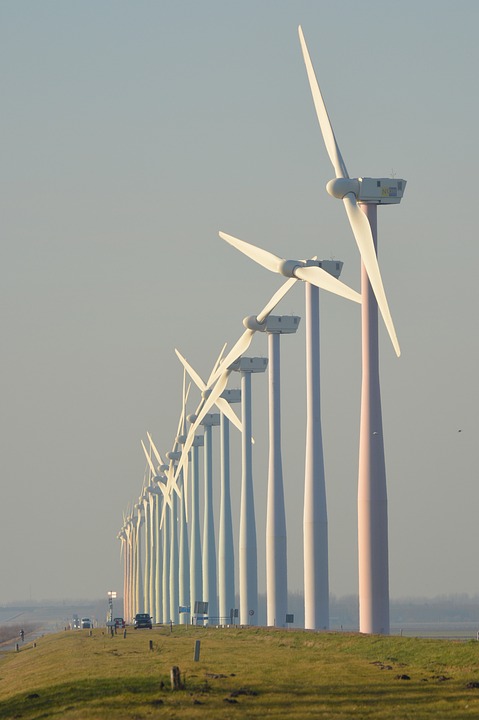From Generation to Consumption: The Role of Power Engineering
The Importance of Power Engineering
Power engineering plays a crucial role in the delivery of electricity from power generation to consumption. It is a complex process that requires careful planning, design, and operation to ensure that power is delivered reliably and efficiently to consumers. In this article, we will explore the key role of power engineering in the energy industry and its significance in ensuring that electricity is generated, transmitted, and delivered to the end-user.
The Power Generation Process
The power generation process begins with the conversion of primary energy sources, such as coal, natural gas, or renewable sources like solar or wind, into electrical energy. This process is known as power generation. Power engineers employed at power plants are responsible for operating and maintaining the facilities to ensure that they function efficiently and effectively.
Types of Power Generation
There are several types of power generation, including:
* Thermal power plants, which use fossil fuels like coal or natural gas to produce electricity
* Nuclear power plants, which use nuclear reactions to generate electricity
* Hydroelectric power plants, which harness the energy of moving water to generate electricity
* Renewable power plants, which use solar, wind, or geothermal energy to generate electricity
The Transmission and Distribution Process
Once electricity is generated, it must be transmitted and distributed to the end-user. Power engineers play a crucial role in this process, as they are responsible for designing, building, and maintaining the transmission and distribution infrastructure.
Transmission and Distribution Systems
Transmission and distribution systems, also known as the grid, are complex networks of power lines, substations, and transformers that carry electricity from the power plant to the consumer. Power engineers ensure that these systems are designed and operated to provide reliable and efficient power transmission and distribution.
Power Distribution and Consumption
The final stage of the power delivery process is power distribution and consumption. Power engineers must ensure that the electricity is delivered to the consumer in a safe and efficient manner. This includes the installation of power distribution lines, the management of voltage, and the provision of power quality.
Power Quality and Reliability
Power engineers must ensure that the electricity is delivered with the right voltage, frequency, and power quality to meet the demands of the end-user. They must also ensure that the power supply is reliable and available when needed.
Challenges and Future Directions
Despite the importance of power engineering, there are several challenges facing the industry, including:
* Increasing demand for electricity, driven by population growth and urbanization
* The need to integrate renewable energy sources into the grid
* The challenge of maintaining grid reliability and resilience in the face of increasing cyber threats
* The need to reduce greenhouse gas emissions and mitigate climate change
To meet these challenges, power engineers are exploring new technologies and innovations, such as:
* Smart grids and smart meters, which allow for real-time monitoring and control of the grid
* Energy storage solutions, which help to stabilize the grid and reduce the need for peaking power plants
* Advanced materials and alloys, which can improve the efficiency and reliability of power generation and transmission equipment
Conclusion
In conclusion, power engineering plays a critical role in the delivery of electricity from power generation to consumption. From the design and operation of power plants to the transmission and distribution of electricity, power engineers are responsible for ensuring that the power supply is reliable, efficient, and safe. As the world continues to urbanize and demand for electricity grows, the role of power engineering will become increasingly important in meeting this growing demand while also addressing the challenges of climate change and grid resilience.
FAQs
What is power engineering?
Power engineering is the branch of engineering that deals with the generation, transmission, and distribution of electricity.
What are the different types of power generation?
There are several types of power generation, including thermal, nuclear, hydroelectric, and renewable power.
What is the role of power engineers in the energy industry?
Power engineers play a crucial role in the energy industry, as they are responsible for designing, building, and maintaining power plants, transmission and distribution lines, and other infrastructure to ensure that electricity is generated, transmitted, and delivered reliably and efficiently.
What are some of the challenges facing the power industry?
Some of the challenges facing the power industry include increasing demand for electricity, the need to integrate renewable energy sources, maintaining grid reliability and resilience, and reducing greenhouse gas emissions and mitigating climate change.
What are some of the solutions to these challenges?
Some of the solutions to these challenges include the use of smart grids and smart meters, energy storage solutions, advanced materials and alloys, and the integration of renewable energy sources.






_2.png?w=150&resize=150,150&ssl=1)
.png?w=150&resize=150,150&ssl=1)